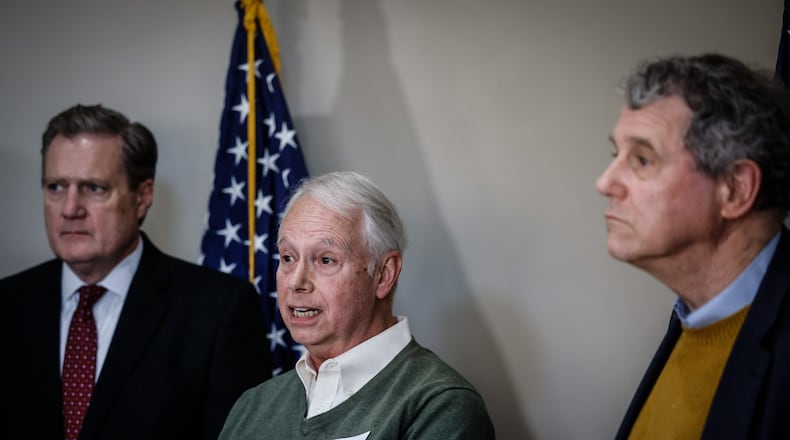Brown said President Joe Biden has indicated his support for the bill.
“This was a problem that was created by government and it’s a problem that needs to be fixed by government,” Turner said.
In 2005, Delphi, a former Dayton auto parts manufacturer now named Aptiv Plc, filed for bankruptcy. In 2009, the parent company, General Motors, also filed for bankruptcy.
After the bankruptcy, salaried employees of Delphi saw their pensions cut when the Pension Benefit Guaranty Corp. assumed control of the company’s pensions. The PBGC is a federal agency/corporation that regulates pensions in private industry.
Some of the former employees’ pensions were reduced by up to 70%. General Motors, Delphi’s former owner, supports the pensions of hourly, union-represented Delphi workers.
The Susan Muffley Act would use federal funds to restore the pensions of former engineers and managers at Delphi.
Bruce Gump, chairman of the Delphi Salaried Retirees Association, said people he’s worked with are dying without receiving their pension. Muffley, for example, died of cancer, but Gump said he knows others who have died by suicide because of the constant worry and stress from financial instability.
“This has to get fixed,” Gump said. “Because the precedents that were established are so horrible, that just has to get fixed for everybody, not just for us.”
Mary Miller, another retiree, has begun working again to make ends meet.
Credit: JIM NOELKER
Credit: JIM NOELKER
“It still affects us every day, and some days it’s really heavy,” Miller said. “You have to decide between if you’re going to take care of your own health, your house if something is broken or a car problem.”
It’s something she and other members of the Delphi Salaried Retirees Association have worked on for decades, she said.
“This is a case of the government decided we didn’t matter,” she said. “And how can that be?”
The benefit losses affected 20,000 Delphi salaried retirees, including more than 5,000 retirees in Ohio, Brown’s office said. Legislation has been proposed multiple times to try to fix the problem.
In 2022, the Supreme Court declined to hear a federal lawsuit over the loss of pensions.
Reporter Thomas Gnau contributed to this story.
About the Author


